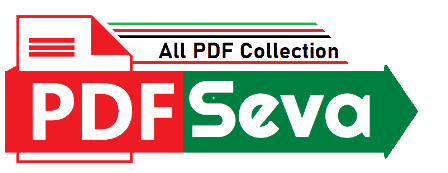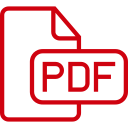
ad here
842 Download
1 year ago
A lease agreement serves as the foundation of a successful landlord-tenant relationship, providing clarity and legal protection for both parties involved. In the state of Georgia, like in many other jurisdictions, a well-drafted lease agreement is an essential tool that outlines the rights and responsibilities of both landlords and tenants. This comprehensive guide will delve into the key aspects of a Georgia lease agreement, shedding light on its components and the significance they hold.
Parties Involved:
The lease agreement establishes a contractual relationship between two primary parties: the landlord and the tenant. The landlord is the property owner who is leasing the property to the tenant. The tenant, on the other hand, is the individual or entity that will occupy the property for a specified period, typically outlined in the lease agreement.
Lease Term:
One of the fundamental elements of a Georgia lease agreement is the lease term, which refers to the duration for which the tenant is granted the right to occupy the property. Lease terms can vary widely, ranging from a few months to several years. It’s important to note that Georgia law does not have a set maximum length for residential lease terms, but longer lease terms may have different legal implications and requirements.
Rent and Payment Terms:
The lease agreement should explicitly state the monthly rent amount and outline the payment terms. This section should clarify when rent is due, how it should be paid (e.g., online, check, direct deposit), and any consequences for late payments. Additionally, the lease should highlight any applicable fees or penalties related to bounced checks or late payments.
Security Deposit:
In Georgia, security deposits are commonly used to protect landlords against potential damages or unpaid rent. The lease agreement should specify the amount of the security deposit, the conditions under which it may be withheld, and the timeframe for returning the deposit after the lease term ends. Georgia law does not set a specific limit on security deposit amounts, but it’s important for landlords to understand their obligations regarding security deposits.
Maintenance and Repairs:
This section outlines the responsibilities of both parties for the maintenance and repair of the property. The lease should detail the party responsible for routine maintenance tasks, such as lawn care and equipment repair. Additionally, systems should be in place to report and address maintenance issues. Georgia law requires landlords to maintain premises in a safe and fair condition, and rentals must reflect this legal obligation.
Utilities and Services:
Lease agreements often specify which utilities and services the tenant is responsible for, such as electricity, water, gas, and trash removal. It’s crucial to outline these details clearly to avoid disputes later on.
Use of the Property:
The lease should stipulate how the tenant is permitted to use the property. This might include restrictions on subleasing, the number of occupants allowed, and whether commercial activities are permitted on the premises. Defining these terms helps prevent unauthorized uses that could potentially lead to conflicts.
Entry and Access:
Georgia law grants landlords the right to access the property for specific reasons, such as making repairs or conducting inspections. The lease agreement should outline the landlord’s right to entry and the procedures that must be followed, including providing advance notice to the tenant.
Termination and Renewal:
The lease agreement should address how the lease can be terminated, whether by the tenant or the landlord. It should specify the required notice periods for both parties and any penalties associated with early termination. If the lease is renewable, the terms for renewal should also be clearly outlined.
Legal and Miscellaneous Clauses:
Lease agreements often include additional clauses that address various legal and practical matters. These may include:
Seeking Legal Counsel:
Given the complex legal implications of a lease agreement, both landlords and tenants in Georgia are encouraged to seek legal counsel before entering into a lease arrangement. An attorney experienced in Georgia’s real estate laws can help ensure that the lease agreement is fair, compliant with state regulations, and tailored to the specific needs and circumstances of the parties involved.
In conclusion, a Georgia lease agreement is a crucial document that establishes the rights and responsibilities of landlords and tenants. It outlines key terms such as the lease term, rent, security deposit, maintenance, and termination procedures. While this guide provides a comprehensive overview, it’s important for both parties to thoroughly understand the lease agreement and seek legal guidance to ensure a smooth and mutually beneficial landlord-tenant relationship.
| PDF Name: | Georgia-Lease-Agreement |
| Author : | LatestPDF |
| File Size : | 248 kB |
| PDF View : | 39 Total |
| Downloads : | 📥 Free Downloads |
| Details : | Free PDF for Best High Quality Georgia-Lease-Agreement to Personalize Your Phone. |
| File Info: | This Page PDF Free Download, View, Read Online And Download / Print This File File At PDFSeva.com |
Copyright/DMCA: We DO NOT own any copyrights of this PDF File. This Georgia Lease Agreement PDF Free Download was either uploaded by our users @LatestPDF or it must be readily available on various places on public domains and in fair use format. as FREE download. Use For education proposal. If you want this Georgia Lease Agreement to be removed or if it is copyright infringement, do drop us an email at [email protected] and this will be taken down within 24 hours!
© PDFSeva.com : Official PDF Site : All rights reserved
